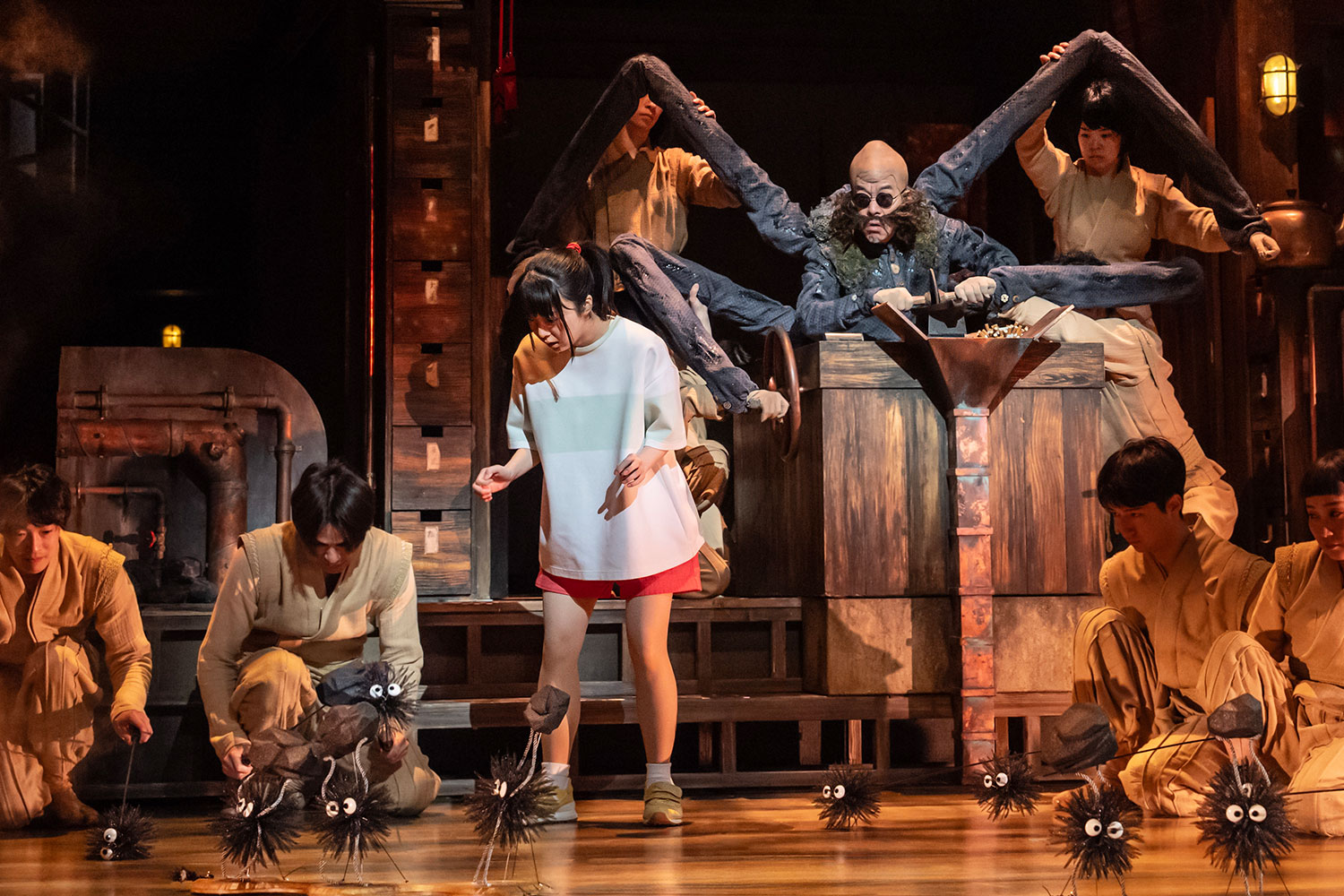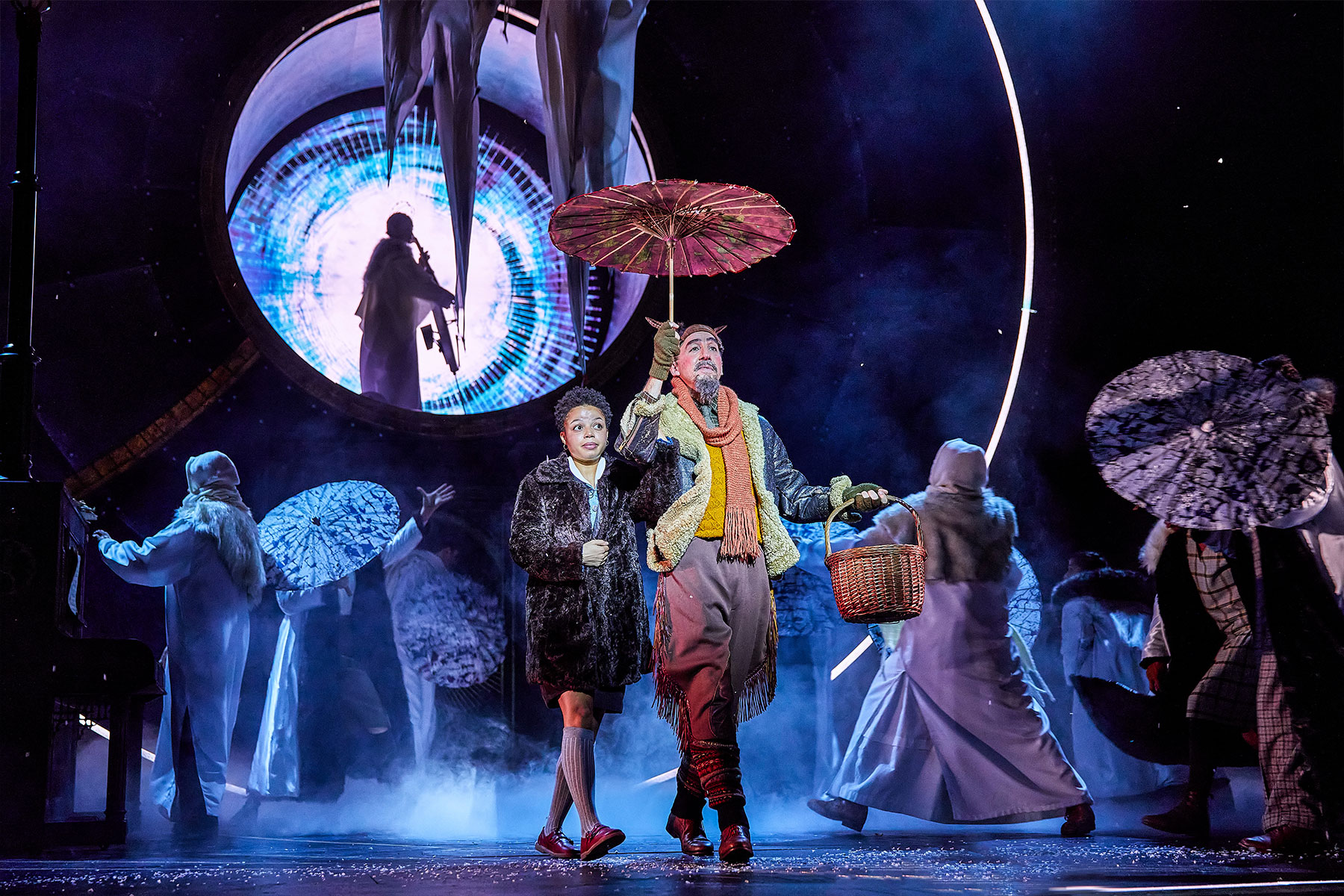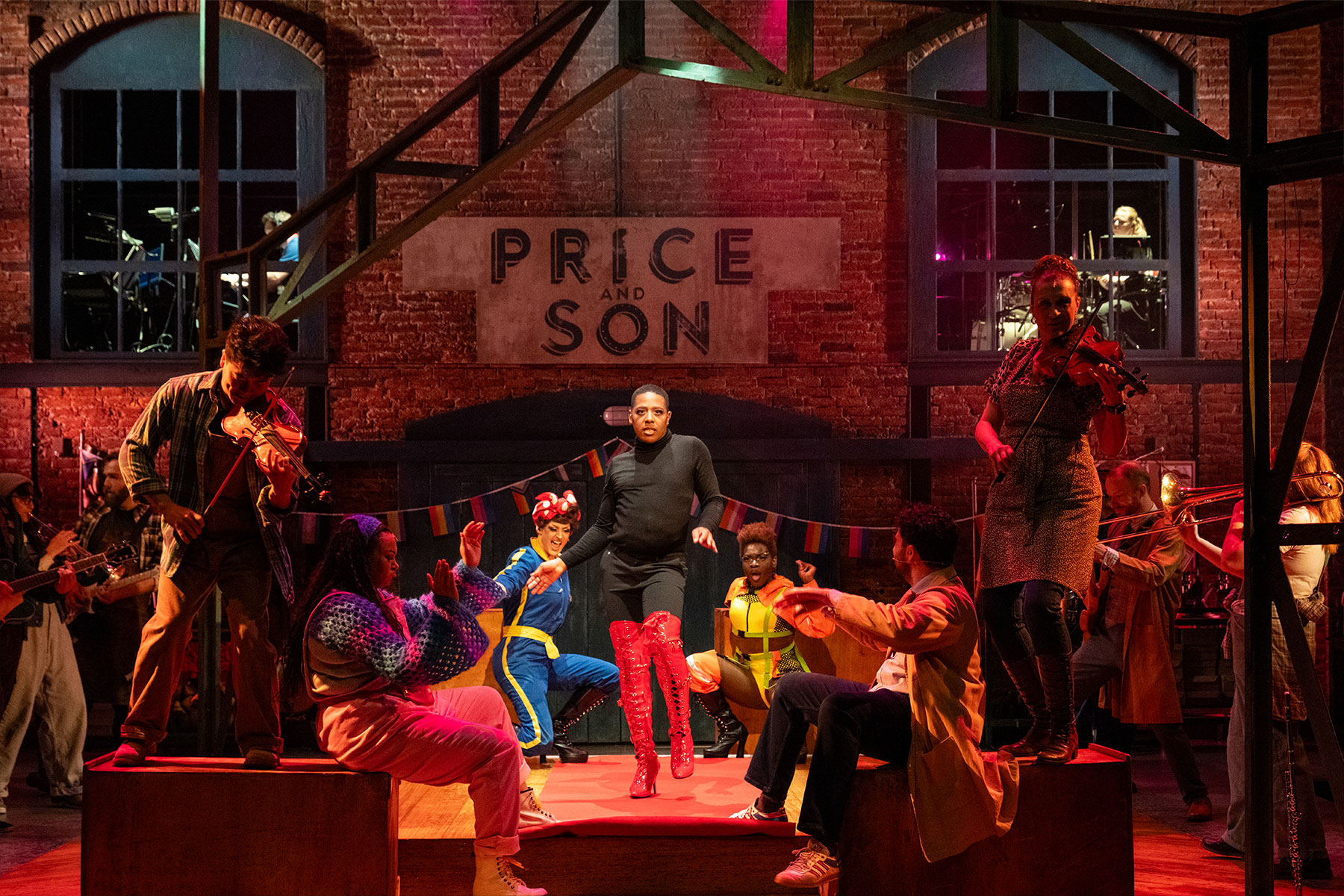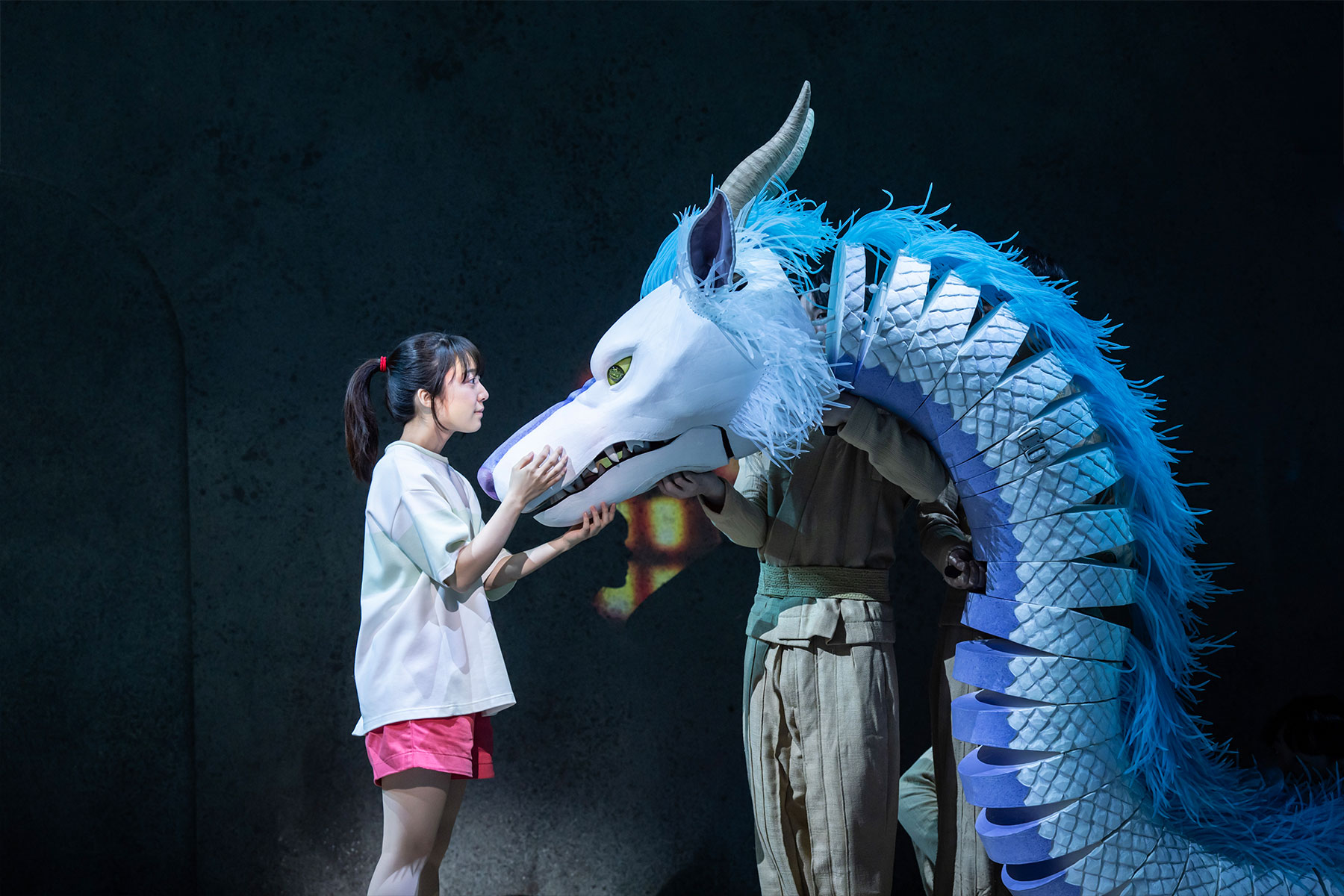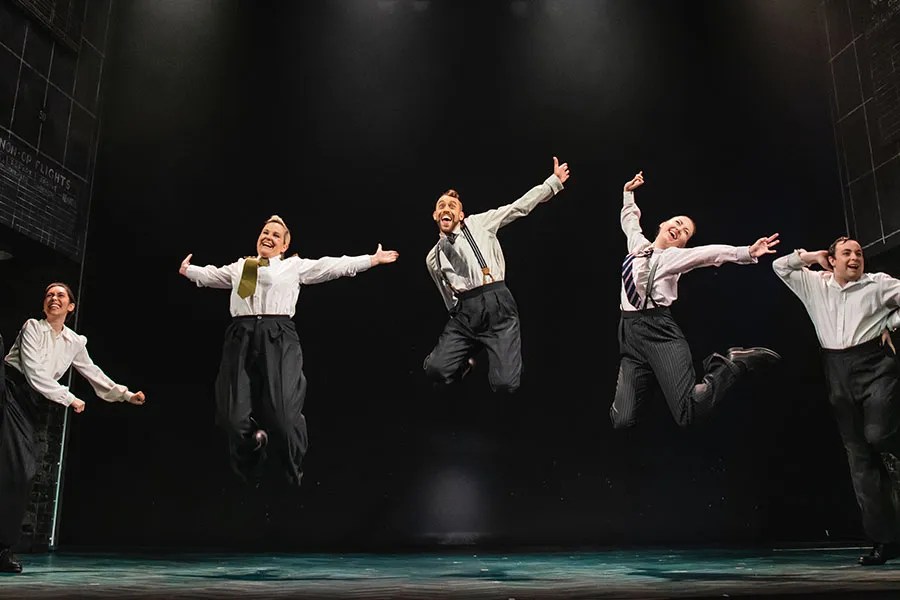Things We Do For Love (Theatre Royal, Bath)

Alan Ayckbourn‘s 1996 play Things We Do For Love is well received by the audience in Bath. The cast have excellent comic timing and get loud laughs from the numerous good punch lines. The production includes the first UK stage appearance of Natalie Imbruglia, better known of course for her TV roles and successful singing career. Typically for Ayckbourn, an ingenious visual setting is used – we see the ground floor of a suburban London house, but also a thigh high section of the separate upper flat and an equally thin section of the ceiling of the basement flat. The partial view is used well in several key scenes, and what is hidden is as important as what is shown. The design here works very effectively and offers more scope for laughter.
The play itself revolves around two ex school chums meeting after 10 years: the imperious and resolutely single Barbara (Claire Price) , and her beautiful friend Nikki (Natalie Imbruglia) who comes to rent the upstairs flat with her boyfriend Hamish (Edward Bennett). Simon Gregor gives a broad comic turn as Gilbert, the heavy drinking postman who lives in the downstairs flat.
The first half, in truth, drags on longer than is needed. The story is set up a bit too slowly (no fault of the cast who provide all the energy they can). It feels at the interval like a light drawing room comedy, needing more substance to hold us fully. The second half turns darker as love and lust‘s random interventions intrude on this comfortable world. The sexual chemistry that is needed to drive the story is never quite there – again, the cast are up against an often difficult script. It is at first hard to see why Imbruglia has been cast here, she does not seems a natural choice for comedy; in act two though, she brings the play to sudden believable life with the fragility and raw emotion that is the hallmark of her music, and her casting then makes perfect sense.
The tone of the piece overall does not quite gel, and the cast struggle to make their characters fully live. The play has an odd mix of emotional levels, from knockabout comedy to intense emotional pain; it feels a bit mechanical at times and the gear changes do not always run smoothly. That said, the evening is likeable enough to require several curtain calls. If not quite successful as human drama, the jokes come fast enough in act two to keep us engaged. This is maybe not vintage Ayckbourn, but he is, as ever, one of our most entertaining teller of stories.
– Tony Clancy



